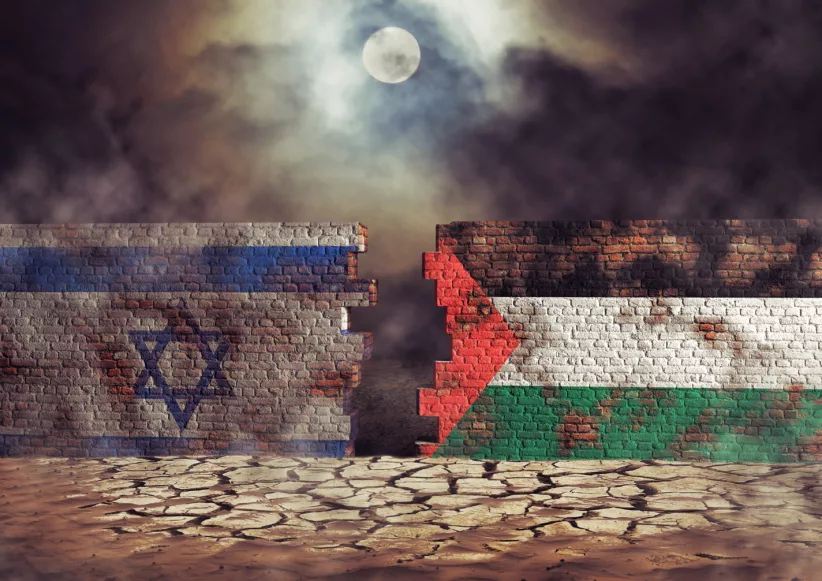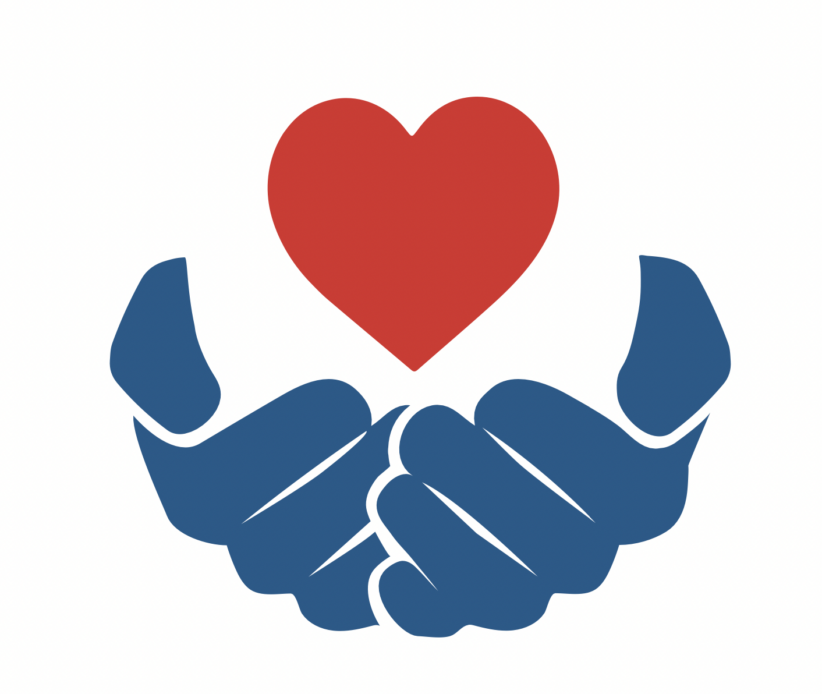
How to Explain the Israel-Palestine Conflict to Kids
In the innocent mind of a child, war is incomprehensible. Most young people, if they are fortunate enough to live in a safe place, are not able to grasp the horrors that war brings. The escalating brutality between Israel and Palestine is something even adults can hardly bear to hear, so it’s understandable that parents might need help explaining the situation to their impressionable children.
We’ve broken it down for you below with tips from experts, extra resources for parents, and simple explanations for kids.
Editors note: We at New York Family understand that this is a highly sensitive topic. Needless to say, we do not condone violence or terroristic acts of any kind. As a family publication, our goal is always to ensure that parents are equipped with the resources they need to raise children, which is why we are sharing this information for families to aid in coping and understanding a frightening situation for kids. Our thoughts are with all those affected by the tragedy unfolding in the Middle East.
Why are Israel and Palestine Fighting?
Your kids might be asking what’s going on. It isn’t easy to simplify a conflict that dates back decades (technically centuries), especially one with such strongly opposing sides. But you don’t need to dust off a history textbook to explain to your kids why Israel and Palestine are at war with one another.
In the country of Israel, located in the Middle East between Africa and Asia, lies territory that is desired by both the Israelis and the Palestinians. The region is also known as the Holy Land and is considered sacred among Jews, Christians and Muslims. Since the 20th century, ownership and occupation of this land has been a major source of conflict between Jewish and Arab nationalists, leading to prolonged violence and political uproar. Unfortunately, thousands of innocent civilians have been killed or injured as a result of this ongoing dispute.
Most recently, the Islamist militant group Hamas – a designated terrorist organization – launched a barbaric surprise attack against Israel which claimed the most Jewish lives in a single day since the Holocaust. Hamas is one of the Palestinian territories’ two major political parties.
Experts recommend parents not share the depraved actions of Hamas with children, which is why we have given this simple explanation for talking to them.
If you and your child are interested learning more about the history of the Israel-Palestine conflict, we recommend reading these articles together:
- kids.kiddle.co/Israeli-Palestinian_conflict
- reuters.com/world/middle-east/israel-palestinian-dispute-hinges-statehood-land-jerusalem-refugees-2023-10-10/
- cfr.org/backgrounder/what-us-policy-israeli-palestinian-conflict

How to Talk to Your Kids About the Israel-Palestine Conflict
While international affairs – even war – tend to be of little concern to most children, this particular situation, with its stomach-churning images of violence broadcasted live for the world to see, is likely to be more than just a passing topic at the dinner table. In the age of social media, the graphic footage is easily accessible to children.
Whether your child has seen the unsettling details or simply overheard adults talking about them, they might be confused and upset by it all. After polling our followers on New York Family’s Instagram, we learned that 75 percent of the parents who responded have children who are upset by what is going on in Israel.
According to Lauren Tetenbaum, a Scarsdale-based social worker specializing in maternal mental health, the most important thing is to open the lines of communication with your kids, whatever age they are, and to make them feel comfortable coming to you for information – just not too much information.
“I have elementary school aged kids and I keep it very direct with them, and honest, and I don’t give more information than the question requires,” she says. “For older kids, you should still be direct and honest, but you may be a little more proactive with them. You might want to reassure them that your job as their parent is to make sure that they feel safe and can come and talk to you about everything. And I think in general the message is always that we want peace and safety for everyone.”
While we are very fortunate to not be near the violence, it’s still a very scary situation. So how do parents approach the conversation in a healthy way that is both truthful and comforting for kids?
“It’s important to acknowledge their worry and also acknowledge yours. As parents, we feel like we have to be superheroes, but I think that it’s really important to show your kids that you are scared too, to a certain extent, but also emphasize that we’re safe here,” Tetenbaum explains.
“I think it’s natural for kids to experience a level of anxiety,” she adds. “So I would encourage parents not to think that it’s abnormal unless it becomes excessive, in which case I would encourage them to reach out for professional support. But otherwise I would acknowledge the anxiety and say ‘Yes, this is an anxiety provoking situation. All war is terrible and sad and scary and we wish it weren’t happening. And I’m always here if you want to talk.’”
“I would avoid details of the violence and be very matter of fact about it,” Tetenbaum continues. “It is a hard balance between teaching them about what’s going on and building empathy, but also not terrifying them.
“Let them know there are ways to help. We can show support, we can donate medical supplies and things like that. Because a lot of kids and grownups, of course, feel very helpless and giving back in any way that you can, can feel good and also, of course, is very much needed.”
Not every kid is going to be upset or even aware of what is going on, which is a good thing. But should parents keep them in the dark if they are old enough to understand? Sort of, according to Tetenbaum.
“It is an extremely raw and current moment,” she says. “So I would say to all parents don’t feel that you have to behave a certain way. Everyone’s processing a lot of emotions. It’s scary. It’s real time. So give yourself a break, if your kid isn’t asking about it right now. I think it’s fine to leave it alone to a certain extent. But you could make the statement ‘You know, there’s war and violence escalating in the Middle East. It’s terrible. Violence is never the answer. And if you have any questions, I’m happy to talk to you.’ And I think that that sets up children for success as empathetic human beings and global citizens because they should know what’s going on. But I don’t think you need to sit them down and hammer it home, especially when feelings are probably heightened for you as well right now.”
Tetenbaum also stresses the importance of caring for yourself first.
“Give yourself a break,” she offers. “I know that we’re all glued to the phones and the news. It’s not great for our mental health. And I know that to be able to turn it off is very much a privilege and obviously the closer you are to the conflict, you can’t. But to the extent that you can I would encourage it because it’s like constant trauma in your face, literally. And I would say volunteering and giving back and educating yourself on these issues are great action items that can make people feel a little bit better. But there’s no one right way to process any of this, so give yourself that kindness.”
Tips for Parents to Help Kids Cope
Experts from the apolitical organization NATAL, Israel’s leading trauma and resilience center, shared the following helpful advice on how to listen to and speak with children about the Israel-Palestine conflict.
Be together and be present. It is important to be with our loved ones. Be present while with your children and communicate with them often. Call people you love on the phone and ask how they are doing. Tell your children phrases like, “We are together and taking care of each other.”
Provide information. Provide essential, reliable and focused information. It is important to help children understand what is happening and it is not recommended to hide information, but on the other hand, there is no need to go into too much detail.
It is important to reduce children’s (and adults’) exposure to media, especially images and content that are inappropriate for their age, despite them being rapidly disseminated on many platforms. Leave only one device on in another room so you can be updated as needed.
The news and social media are full of images and videos that are unsettling and can linger in our thoughts for an extended period. Despite the natural temptation to watch, it is important to be responsible with such media and not disseminate it.
Normalize and accept. Explain that this situation arouses feelings of tension, apprehension and anxiety in everyone. Give legitimacy to everything they share with you – explain that physical and emotional reactions (fear, crying, tremors, confusion) are a normal reaction to this situation.
Relax and ground yourselves. Inhale deeply, let your mind wander to happy places, and embrace one another. Engaging in physical activities such as stretching, yoga, jumping, strength training, or dancing can be significantly beneficial. Offering a helping hand and sharing a smile – even a forced one – are two powerful gestures that provide strength during challenging times.
And lastly, don’t stay alone with your thoughts.

How to Help Those Affected by the Israel-Palestine Conflict
There are many ways to help those affected by the recent attacks in Israel. If you would like to donate to aid in relief efforts, here are some reputable charities to look into:
The United Jewish Appeal Israel Emergency Fund
The International Fellowship of Christians and Jews
The United Nations Relief and Works Agency for Palestine Refugees
The American Jewish Joint Distribution Committee
Psst…Courage to Act: Rescue in Denmark Exhibition is a Must-See for Families






















